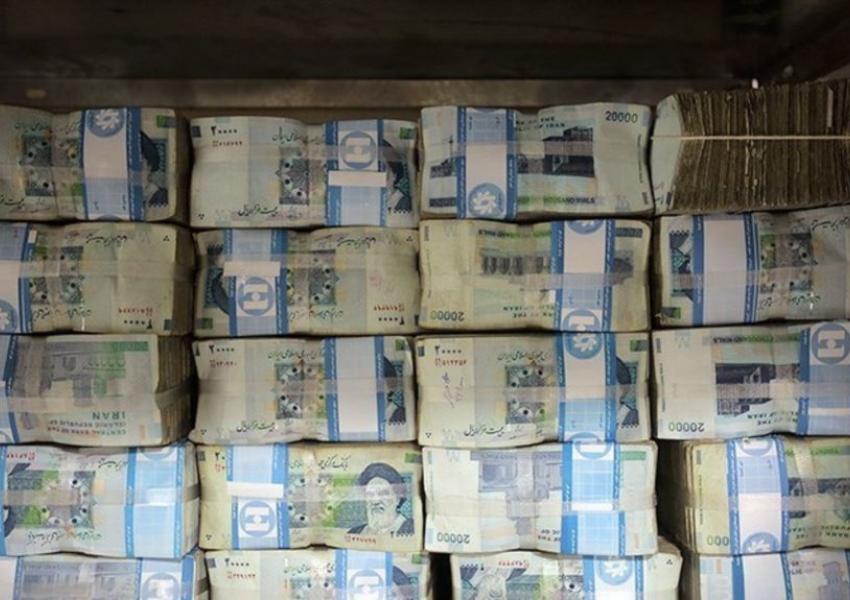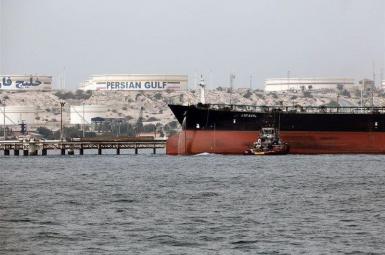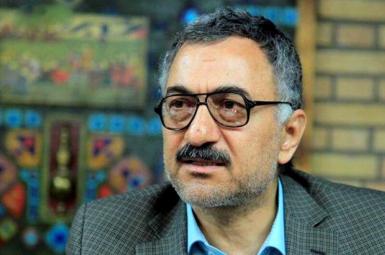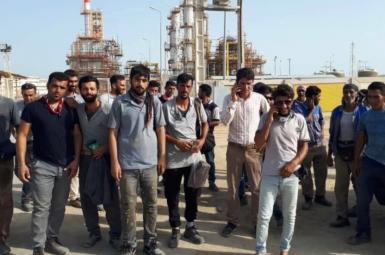
Iran Resorted To Spending National Reserves As Budget Deficit Soared
Iran withdrew nearly $17 billion from its currency reserves in 2019-2020 (the Iranian calendar year 1398, ending March 2020) to balance its budget because forecasts for oil sales were too optimistic, the Parliament Research Center (PRC) has reported (Persian).
The 2019-20 budget projected more than $42 billion revenue from exports of crude and oil derivatives whereas in practice Iran was able to sell less than $30 billion of its main foreign currency earning oil commodities.
The $12 billion shortfall in oil exports, in addition to less than expected revenue in other areas such as tax collection, left Iran with a budget deficit of around $17 billion, which was made up by withdrawals from the country’s National Development Fund (NDF) and hard currencies held by the Central Bank of Iran (CBI), with some smaller help from issuing bonds (around $6 billion).
The NDF was created in early 2000s to put aside a percentage of oil income as a sovereign fund for future generations. But as Iran came under international sanctions from 2012 until 2016, and subsequent United States sanctions from mid-2018 until now, Iran has made frequent withdrawals from the special reserve. At one point, the fund had around $160 billion, but today’s estimates range from $30 billion to $70 billion.
Government bonds have yielded little as foreign investors are not interested and private Iranian capital has preferred to invest abroad. The main buyer of the bonds have been government banks and companies that borrow from the central bank. The harmful circle is completed when the CBI prints money to finance largely government institutions buying the bonds, thereby increasing liquidity and fuelling inflation.
The PRC report, made public this week, says that 40 percent of the budget shortfall was met by government borrowing, although this figure is obscured by increasing the money supply, which has raised liquidity fourfold since 2013. As a consequence, the inflation rate in the past two years has hovered around 30-50 percent, and is far higher for food.
‘Privatization’ has also been of limited benefit. With no international interest, those buying shares in previously state-owned companies have often been quasi-state bodies and those with useful ‘connections.’ Several prominent trials have highlighted corrupt dealings.
Another fiscal oddity in Iran is that the government’s official budget does not reflect all state expenditure. There are secret budgets for military, nuclear development, and foreign operations. How much of these are directly financed by the budget of the government, or presidential administration, is not clear.
The Islamic Revolutionary Guard Corps (IRGC) controls a substantial part of Iran’s economy and it is not accountable to the presidential administration. Revenues and expenditures remain hidden from public view. Religious foundations, which have multi-billion-dollar assets, are similarly opaque.
In the 2021 proposed budget, presented recently to parliament, the government has again forecast a healthy increase in oil revenues. President Hassan Rouhani has expressed optimism over the easing of sanctions as the US upholds Iran’s 2015 nuclear agreement with world powers, which President Donald Trump rejected. While President-elect Joe Biden has expressed support for reviving the agreement, a timetable for easing sanctions will require agreement over sequencing this with Iran’s return to the limits the deal imposed on its nuclear program.








